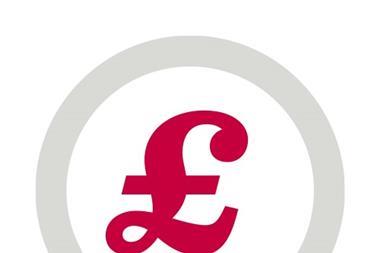
It’s the first month of the year - supposed to be the month of fresh starts, new resolutions and opportunities, and brightening days. So why do so many people dread January?
For some it’s because they’ll be receiving the bills for over-exuberant spending before Christmas; for retailers it’s usually because January is often a very flat month for sales, and there’s often still some ‘seasonal’ stock to try and shift – usually at heavily-discounted prices – simply to get it out of the shop and generate a bit of cash-flow.
Fortunately, few forecourt operators these days are in the position where they succumbed to over-zealous ‘offers’ from sales reps (or even oil company ‘area managers’) in the run-up to winter, and bought two-years’ worth of anti-freeze or screen de-icer in anticipation of the snow and ice arriving in December and January, only to have to find a lock-up garage off-premises in which to store the stuff, for another couple of years. You may chuckle, but it did happen – more often than you might imagine.
But as far as we accountants are concerned, there’s another reason why January is month to which we don’t look forward very much: the deadline for filing clients’ tax returns is the of January 31. Yes, we’re talking about personal tax returns (quite apart from any company-related tax matters) for the tax year April 6, 2022 to April 5, 2023. You might think that’s quite some time ago – after all, we’re closer to April 2024 than we are to either of those dates and we’ve already had eight months in which to tidy up and submit anything related to April 2023. Quite true. But in accountants’ offices up and down the land, there’ll be a quiet panic going on as this month progresses and the deadline draws closer; especially in their Tax departments. Because no matter how early last year they started to prepare the tax returns, there will be a sizeable proportion of clients who simply haven’t provided the information required to complete the returns. Despite the email requests, and the ‘phone calls.
Whenever this subject crops up, there’s usually a response from clients that goes along the lines “You’ve been preparing my business management accounts and annual accounts for years. Surely, you’ve already got all of the information that you need just to do my personal tax return (and that of my spouse, while we’re at it)?” To which the answer is always the same: No, we haven’t – or at least, we don’t know whether we have everything we need until you answer some questions and confirm it. The reason being that here we’re talking about ‘personal’ Tax; and that involves a lot of personal information that doesn’t relate directly to your business, and which usually doesn’t get sent to your accountant by third-parties. There’s also a certain irony here: a lot of the information that your accountant is asking you to provide is (at least in theory) already ‘known’ (or perhaps more accurately – ‘available’) to HMRC. And there’s an unwritten rule in accountancy which says “Don’t find yourself in a position where the Revenue look at what you’ve filed and then come back and tell you what they (and your client) know, but you apparently don’t!”
Let’s take a very simple example: you have some bank savings accounts that pay interest; most likely into your personal bank account - not into any business account – and sometime after April 6 of each year you’ll have received a statement from the savings account showing how much interest they’ve paid you in that tax year. And it’ll usually have a note at the top telling you that you need to keep this safe because it could be required for your tax-return. In theory, that information will also have been sent to the Revenue; but it’s not likely that your accountant will know anything about it unless you provide a copy yourself. It becomes even more important when we come to look at things like Dividend receipts, and further complicated if you’ve acquired or disposed of any ‘Chargeable Assets’ during the year – either shareholdings or non-residential property, for example, which will require a Capital Gains Tax calculation to be submitted.
On the other side of the tax equation are things which might reduce your tax liability: such as charitable donations, pension contributions, etc. While some of these might have been paid through your business accounts, most will probably have gone out of your personal bank account. The point is that in all probability your accountant will not have any knowledge of these things simply by virtue of having completed financial statements for your business. And that’s before thinking about those clients who run a separate business ‘on the side’ – property letting, eBay trading, for example – either themselves or with their spouse / partner. Very often we hear about these sorts of activities just before the January 31, along with some comment like “I meant to get you to prepare the accounts for that last year, but never quite got around to asking you”…
Suffice to say, that’s not what any accountant wishes to hear anytime in January, especially as we get closer to the end of the month. In reality many accountants will have been chasing their clients for this sort of information probably since last September, if not even earlier. The upshot of this is that in many accountants’ offices anyone connected with their Tax Department retreats behind the main switchboard and refuses to make or receive any calls (especially from colleagues…) unless they relate directly to something which they’ve been waiting for from a client. And if they seem reluctant to answer any other queries from you, or respond to even the friendliest email during this time, please make allowances – there are people rapidly going grey due to stress during January in many accounting practices. And if they’re bothering you by leaving repeated phone messages on your voicemail, or sending you three WhatsApp’s a day, no they’re not stalking you, just trying to help you get the best possible outcome from last year’s tax return!
































